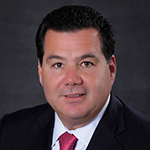When Ron Pasek joined international semiconductor company Altera at the end of 2009, he saw an opportunity to make a difference. “There wasn’t a culture of business partnering and there wasn’t a culture of reporting or analysis; most of finance stayed in the accounting realm, focusing on closing the books,” says Pasek. “I wanted to get the finance organization to the point at which it could and would enjoy supporting and challenging the business and providing not just data, but in-depth analysis, things people didn’t already know.”
Whether orienting your finance team, determining your HR priorities, or planning a major initiative, Pasek’s story helps illustrates the necessity of grounding your daily work in a comprehensive, enterprise-wide strategy.
Refocusing energies
When Pasek arrived at Altera, the finance organization was extremely busy, but in the wrong way. “It was busy closing the books every month, which is unusual; most companies do a hard close every quarter and a soft close every month,” he says.
Pasek had a good idea what a successful finance organization looked like, having just come off a 19-year stint at Sun Microsystems. “Build the strongest team you can possibly build; hire athletes who are willing to take on different roles; develop people by moving them laterally or upwards every two to three years; and create a culture of people that enjoy learning,” he says.
At Altera, the first step in that direction was changing from a monthly hard close to a soft close, freeing resources that could then be allocated to the creation of a more meaningful finance presence. “I told my employees they could either provide more analysis by moving to the FP&A side, or they could become business partners,” Pasek says.
When Pasek advocates for acting as business partners, he means taking an active role in decision support, developing and using data to drive the decision-making process in a meaningful way. At Altera, the transition wasn’t easy, as a number of employees lacked the appropriate skill set. Some of the finance team were transitioned out of the organization, allowing Pasek to recruit others who had experience with his new methodology.
Capabilities on display
After joining Altera, Pasek realized that the finance organization didn’t have a voice because it wasn’t publishing anything. “They tended to report the results, which is always after the fact,” he says. “It wasn’t information that people didn’t already know, [but rather] a firm grasp of the obvious.”
As a result, an important step in the organization’s cultural evolution was doing analysis and presenting it. “I try, after a quarter ends and we have the benefit of perspective, to understand the trends,” Pasek says. “For example, if we decided to invest in certain area, are we getting the return we thought? Or are there areas in which we’re not doing well?” It’s about trying to understand not just what is happening, but why. “Publishing this analysis on a quarterly basis provides a backbone for the organization to understand whether they’re successful in the right areas and if not, why not, and what they can do about it,” Pasek says.
It was also important to be accessible. Prior to Pasek’s arrival, anyone at Altera with a finance question often didn’t know where to turn. By revamping the finance organization’s website, Pasek was able to develop an intuitive self-service user interface to address a majority of the issues. “Now employees can easily get answers to questions and learn how to get their problems solved,” he says.
Though it’s hard to quantify the results of Pasek’s efforts, one of the measures he uses is whether he’s getting efficiency from the finance organization. “I could easily do all of the things I’ve done by adding a bunch of people, but I haven’t added a single new net person since I started four years ago,” he says. “More importantly, while the people here work hard, they’re not overworked. I’m not getting efficiency from people by making them work 60 hours a week.”
The business jumps on board
“My understanding of changing to a culture of business partnering involved putting the right finance people in front of the business, but I realized at Altera that there was another part: getting the business to accept those people,” says Pasek.
In some cases, business units had been uncomfortable with the support of the finance organization even though they desperately needed and had requested that support. The solution: “We just had to keep going back to the business units and saying, ‘Here’s what you said you needed, and here’s a person who’s doing it,” Pasek says. “There’s nothing wrong here; we’re just doing things in a new way.”

